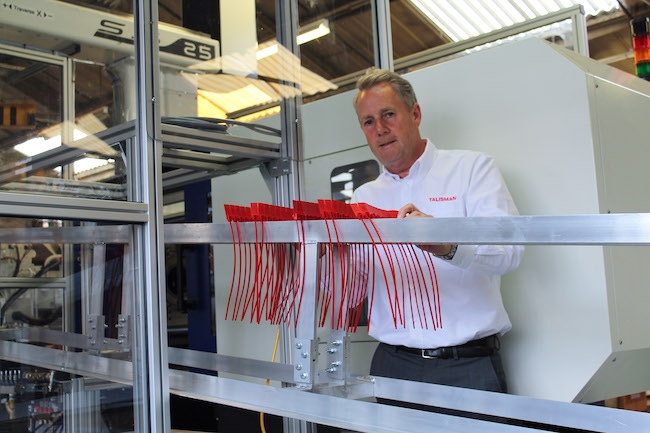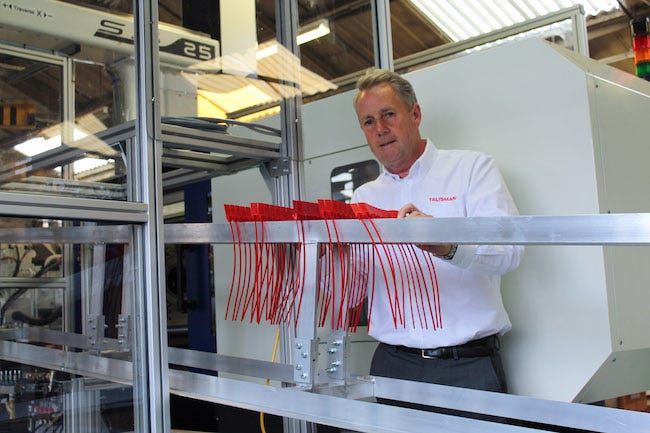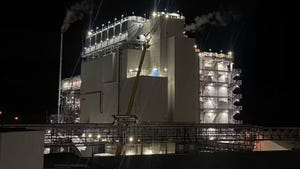Talisman Plastics Invests in Molding Cell to Meet Healthcare Demand and Environmental Goals
The production cell comprises a Haitian Mars 160-ton injection molding machine, three-axis Sepro robot, and Keyence laser printer.
June 17, 2020

UK-based Talisman Plastics has invested in an advanced injection molding cell to support its product development program for biodegradable and recycled plastic security seals, as well as to increase overall production capacity and flexibility.
The new Haitian Mars 160-ton injection molding machine provides major improvements in production flexibility with class-leading energy efficiency and repeatability, said Talisman. The use of servo-hydraulic technology delivers shorter cycle times and precise tolerances on security seal products, added the company located in Malvern.
The work cell also incorporates a new three-axis Sepro robot and Keyence laser printer. The system is capable of 24/7 production of high-quality, precision security seals in a variety of materials and with custom finishes.
“We have seen prolonged increase in demand for Talisman specialist security seals in sectors such as healthcare, retail, and logistics,” said Shaun Champion, Managing Director. “This investment ensures we have the capacity needed to continue supporting the recent increase in [National Health Service] requirements, particularly for products such as our clinical waste seals.” In addition to providing flexibility and cost savings, the investment also enables the production of high-performance, cost-effective security seal products made from recycled or biodegradable plastics, added Champion.
|
Talisman Plastics has seen rising demand for security seals in the healthcare, retail, and logistics sectors, said Shaun Champion, Managing Director of the UK-based company. Image courtesy Talisman Plastics. |
“The sophisticated design of the injection unit in combination with a powerful servo-drive system benefits from independent algorithm modules,” said Fi Nanhong, Chief Engineer of Haitian International. “Thanks to the fast, accurate calculations and highly efficient mathematical models, the stability of the injection process is now much higher, whether for extremely fast or slow injection. The improvement is significant,” added Nanhong.
About the Author(s)
You May Also Like



